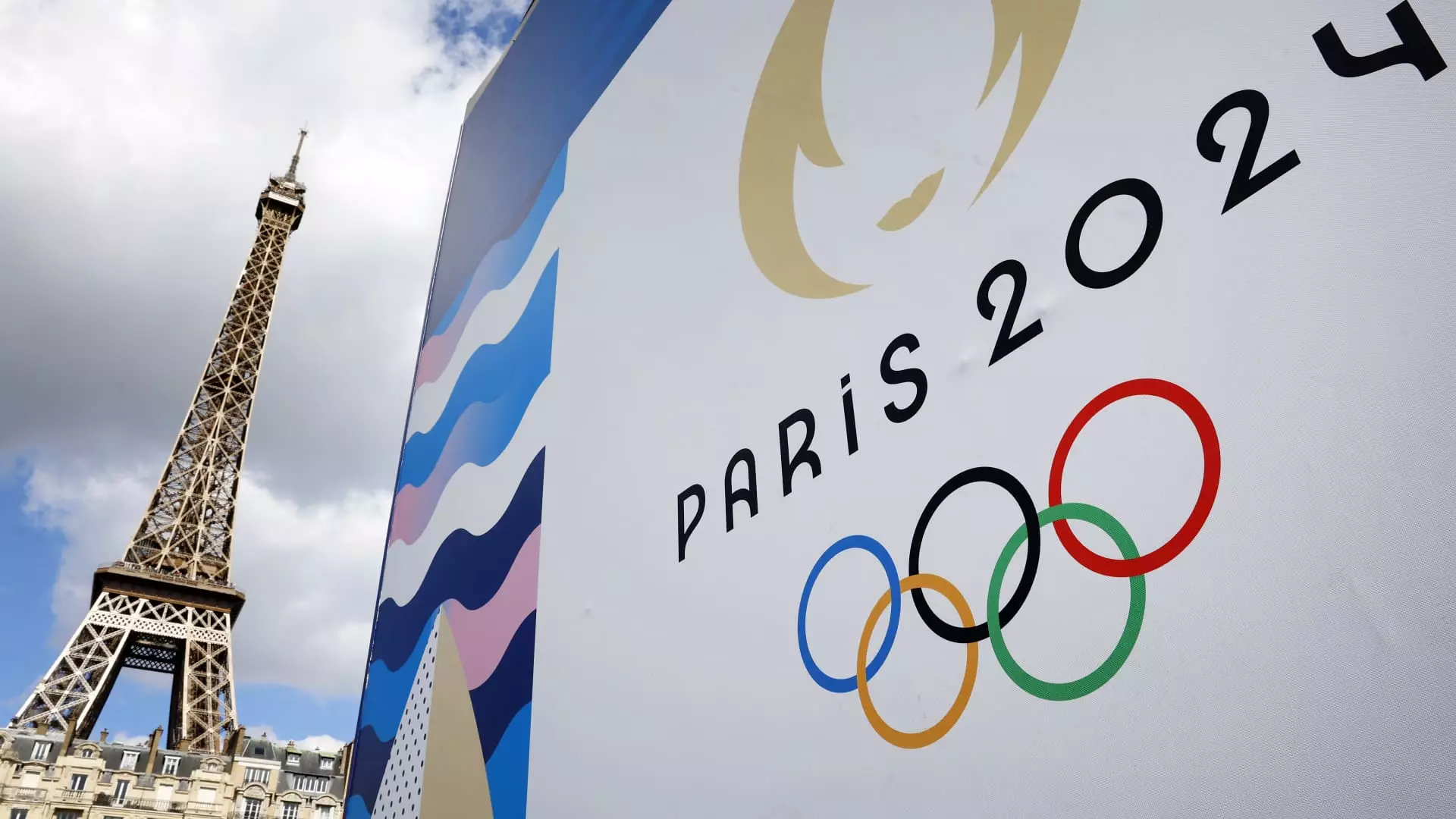The upcoming Summer Olympics in Paris have brought mixed reactions when it comes to travel demand. While more than 10,000 athletes are thrilled to participate in the event, potential tourists seem to be avoiding the city. According to Delta Air Lines CEO Ed Bastian, the airline is facing a $100 million hit due to travelers choosing alternative destinations this summer. The reduced demand for travel to Paris has impacted not only Delta but also other airlines operating in the region.
Delta Air Lines has a significant presence in Paris, holding the most service of any U.S. airline to the city and a joint venture with Air France. Together, the two carriers dominate around 70% of the market for nonstop service between the U.S. and France. However, despite this strong position, the airlines are facing challenges in light of the upcoming Olympic Games. Both Delta and Air France-KLM have revised their revenue forecasts for the summer months, anticipating a decline in travel to Paris.
While the demand for travel to Paris during the Olympics seems to be subdued, industry experts predict a resurgence in interest after the event concludes. Bastian and other airline executives believe that Paris will see an uptick in demand once the Olympics are over, as travelers may be waiting for prices to stabilize post-event. This anticipation of a stronger demand post-Olympics is a ray of hope for airlines facing current challenges in the market.
One of the key reasons for the reduced demand for mid-summer travel to Paris is the expected surge in hotel prices during the Olympic period. Hotel-data firm STR has forecasted a significant increase in revenue per available room for upscale hotels in Paris during July and August, leading many travelers to reconsider their plans. As a result, travelers are exploring alternative travel destinations or postponing their trips to Paris until after the Olympic Games conclude.
The changing dynamics of travel patterns are evident in the shift towards non-traditional peak seasons for European vacations. Delta’s president, Glen Hauenstein, highlighted that many travelers are opting to visit Europe in September and October, steering away from the crowded and expensive summer months. This shift provides airlines with an opportunity to generate additional revenue outside of the peak travel season, catering to a diverse group of travelers with varying preferences and schedules.
Amidst the concerns surrounding travel to Paris, Delta Air Lines is witnessing a surge in travel demand for Japan. The favorable exchange rate for U.S. tourists has made Japan a more attractive destination, leading to an increase in bookings and interest in the country. Hauenstein emphasized the positive impact of the exchange rate on travel decisions, highlighting Japan as a promising market for the airline.
The Paris Olympics have had a significant impact on travel demand, with airlines like Delta facing challenges due to reduced interest in traveling to the city. While the immediate outlook may seem challenging, the anticipation of stronger demand post-Olympics and the shift towards non-traditional travel seasons present opportunities for airlines to adapt and capitalize on changing consumer preferences. As the travel industry continues to evolve, airlines must navigate these shifts in demand and offer travelers a diverse range of options to meet their evolving needs and preferences.

